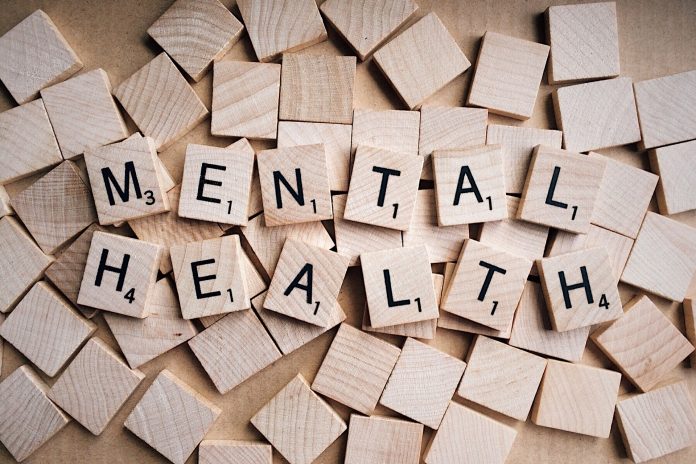No matter what age we are, caring for our mental wellbeing is essential to living a full and happy life. As we get older, the obstacles we face in life can cause our enjoyment of life to suffer; vision loss, social isolation, and mobility problems. As everyone is different, we’ve compiled a list of different ways you can improve your mental wellbeing and get back to enjoying life to the fullest.
Online Therapy
Online therapy is used by people of all ages, and it has become essential for seniors who have a hard time getting around and would struggle to get to a counselor’s office. Many seniors are apprehensive about starting online therapy, as they fear they will have a hard time connecting to their therapist via video or that it will be more challenging to remain focused in the moment if the counselor isn’t physically there. However, many seniors have found they prefer online therapy over in-person appointments because you can attend the meetings from home. Many people feel more comfortable in familiar surroundings than in a therapist’s office, which allows them the freedom to open up about any problems they’re facing.
All you need is an internet connection and a laptop or tablet with a webcam built-in, and you can attend online therapy. With so many companies out there offering online counseling, it can become overwhelming to know which is right for you. This helpful guide looks at Talkspace vs. BetterHelp compared to Emote, which can help you find the best service for your online therapy.
Food For The Brain
It is well known that food affects your body, but many people don’t realize that it affects your mind too. Having a nutritious diet will not only reduce your risk of developing some chronic diseases, help you keep a healthy body weight and healthy heart, but it can also affect your mood and your mental health. Eating a well-balanced diet is an integral part of staying healthy as you age; foods rich in fiber, vitamins, minerals are the best way to meet nutritional needs. Avoid as many processed sugars, saturated and trans fats, and salt as you can when choosing what to eat.
Get Moving & Go Outside
Boost your mood by increasing the feel-good chemicals like endorphins into your brain through exercise. Exercise is an essential part of your mental health as it reduces stress and has proven to be an effective remedy to help manage depression and anxiety. Try to get at least 30 minutes to an hour of exercise every day, and there are plenty of exercise routine ideas online to help you get started.
When exercising, it’s also important to get outside for at least 20 minutes a day; try organizing a group walk with your community to give you the benefit of company and have fun with your friends. Spending time outside can instantly boost your mood as you begin absorbing vitamin D from the sun. Deficiencies in vitamin D have been linked to higher rates of depression and cognitive impairment; seniors are at particular risk of developing a deficiency in vitamin D. It is vital to have some time outside each day to reduce your risk, even if it’s only to sit on your front lawn or a local bench.
Stay In Touch
Sustaining your connection to your family is a fantastic way to improve your mental wellbeing. Spend time at a nature center with siblings or adult children or help your grandchildren with a birthday surprise meal for their parents; there are many activities for you to enjoy with your family to improve your mental health. As well as spending time with your family, stay in touch with your friends by going to the movies, shopping, or getting dinner together on a regular basis.
Get Involved In The Community
Connecting with your family and friends is only part of being social; take an active role in your community by doing some volunteer work at one of the many organizations in your local area. Doing something for others will make your feel good and give you a wonderful opportunity to stay social. Having a meaningful connection with another person as you help them through a difficult time or working to find homes for abandoned animals will improve your mood and reduce stress and anxiety.
Consider A Pet
Loneliness and isolation are common feelings among seniors; as we age, we begin to spend more time at home and can lack mobility which keeps us from staying active. Getting a pet is a great way to benefit your mental health as they provide invaluable company as well as having a positive impact on your wellbeing. Sharing your life with a furry friend will reduce stress and anxiety. It has been found that as we pet an animal, it releases serotonin into the brain, which is our happy hormone; higher serotonin levels can have an effect on lowering blood pressure.
If you live alone and have lost a partner, friend, or family, having a pet can give a little light back into your life. Pets love unconditionally without judging you’re and will always be happy to be by your side.
Stimulate The Mind
Stimulate your mind with puzzles, books, learning a new skill, playing board games, creating crafts, or cooking to boost your mental health. Keeping the brain busy has also been shown to reduce the risk of dementia as it sharpens the memory, improves reasoning and cognitive processing. Include friends, family, or visit a community center to play with others to make stimulating your mind more fun.
Get Plenty Of Sleep
Sleep is the time for rest and rejuvenation, and no matter how old you are, it is essential that you give your mind and body time to recuperate after a long day. Quality sleep is vital for senior mental wellbeing, and you should aim to get at least seven hours of sleep every night. Not getting enough sleep can cause your to develop health issues like depression and anxiety, which is why keeping your sleep quality high is vital to maintaining good mental wellbeing.























